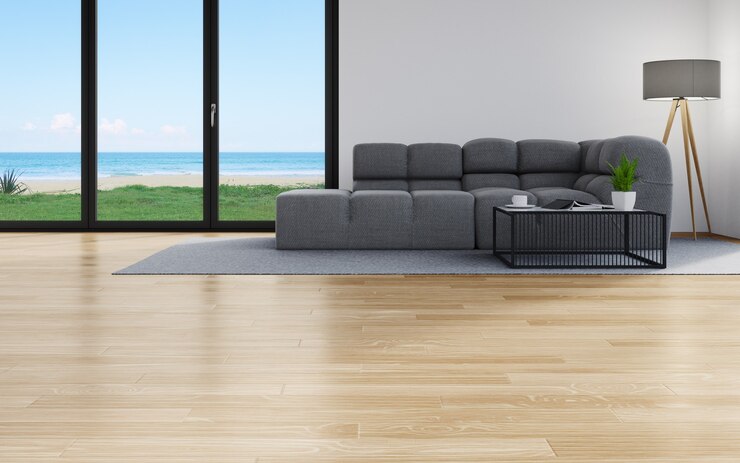Advantages of Laminate Flooring:
- Affordability: Laminate flooring is a cost-effective option compared to other flooring materials such as hardwood or stone. It provides a similar aesthetic at a fraction of the cost.
- Durability: Laminate flooring is known for its durability and resistance to wear and tear. It is highly scratch-resistant and can withstand heavy foot traffic, making it suitable for high-traffic areas in residential and commercial spaces.
- Easy Installation: Laminate flooring is designed with a “floating” installation system, which means it does not need to be glued or nailed down to the subfloor. This makes it a popular choice for DIY enthusiasts, as it can be installed relatively easily and quickly.
- Wide Range of Designs: Laminate flooring offers a wide variety of designs, including realistic wood grain patterns, stone finishes, and tile imitations. It allows homeowners to achieve the desired aesthetic for their space without the higher cost associated with natural materials.
- Low Maintenance: Laminate flooring is easy to clean and maintain. Regular sweeping or vacuuming, along with occasional damp mopping, is usually sufficient to keep it looking clean and fresh. Laminate is also resistant to stains, fading, and moisture, making it a practical option for busy households.
Disadvantages of Laminate Flooring:
- Susceptibility to Moisture: While laminate flooring is relatively resistant to moisture, it is not waterproof. Prolonged exposure to water or excessive moisture can cause the planks to warp or swell. It is important to address spills and leaks promptly to prevent damage.
- Limited Repair Options: Unlike hardwood flooring, laminate flooring cannot be refinished or sanded down to remove scratches or restore its appearance. If a laminate plank is damaged, it usually needs to be replaced, which can be more challenging compared to refinishing hardwood.
- Sound and Feel: Laminate flooring can be louder and have a “hollow” sound compared to natural materials like hardwood or stone. The underlayment used during installation can help reduce noise, but it may still lack the solid feel and acoustic qualities of other flooring options.
- Resale Value: While laminate flooring offers an attractive appearance, it may not add as much value to a property compared to premium flooring materials like hardwood or natural stone. Some buyers may prefer the authenticity and perceived quality of natural materials.
- Environmental Considerations: Laminate flooring is typically made from composite wood materials, which may contain resins and chemicals that can release volatile organic compounds (VOCs). However, many manufacturers now produce low-VOC or eco-friendly laminate options to address these concerns.
It’s important to consider these advantages and disadvantages in relation to your specific needs, budget, and the intended use of the space. Consulting with flooring professionals can provide further guidance in selecting the best flooring option for your requirements.

